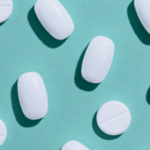What is testosterone?
Testosterone is a hormone (a molecule produced by specific cells in the body that is transported in the blood to act on other cells) produced in the testicles of males, the ovaries of females, and the adrenal glands (small glands that sit above the kidneys, which secrete hormones important for many bodily functions) of both sexes.
The level of testosterone produced in the testicles is much greater than that produced in the ovaries or adrenals, so testosterone levels are much higher in adult males than females.
Testosterone is the main androgen in men. It is responsible for the development of the male reproductive system before birth.
Testosterone is also needed for spermatogenesis — the production and development of mature sperm.
In women, testosterone is responsible for bone strength and sex drive.
How is testosterone regulated?
Normal testosterone levels are needed for physical and mental health. Your body has ways of making sure your testosterone levels are appropriate for proper bodily function.
The hypothalamic-pituitary-gonadal axis controls testosterone production in your body. The hypothalamus is a region at the base of the brain that links the nervous system and endocrine (hormonal) system and regulates many bodily systems to maintain homeostasis - the steady state of the body’s systems and processes to maintain optimal function in response to changes in the environment. The hypothalamus produces gonadotropin-releasing hormone (GnRH), which is released into the blood supply to the pituitary gland. GnRH acts on cells in the pituitary, causing them to release luteinizing hormone (LH) and follicle-stimulating hormone (FSH) into the bloodstream. LH and FSH both act on cells in the testicles to trigger testosterone production and spermatogenesis, respectively. Testosterone is released into the bloodstream to act on tissues and cells throughout the body.
The body functions to keep testosterone levels in balance by using negative feedback. Testosterone acts on the hypothalamus and pituitary to decrease the release of GnRH by the hypothalamus, and LH and FSH by the pituitary.
There are many factors that influence testosterone production and actions in the body, including stress, nutrition and exercise. If these are not balanced, or parts of this system are not functioning properly, illness and disease can occur.
Subscribe to our newsletter

How common are problems with testosterone?
Androgen deficiency and hypogonadism are conditions in which testosterone levels are abnormally low.
These can be caused by low testosterone levels due to problems in the testicles and/or hypothalamus and pituitary, or because testosterone does not act properly in the body’s cells.
Klinefelter syndrome is a common cause of low testosterone levels and occurs in at least 1 out of every 500 Australian males.
A lower level of testosterone in the blood is common in aging men and increases as you get older, often in association with diseases such as obesity or diabetes.
This occurs in about 1 in 1000 men aged 40-49, 1 in 170 aged 50-59, more than 1 in 30 aged 60-69, and about 1 in 20 men aged 70-79. These men may have symptoms similar to androgen deficiency but more research is required to know whether testosterone treatment is appropriate for them.
Many men with prostate cancer receive medical treatment to lower their testosterone level.
Artificially high testosterone levels can cause a variety of health problems, including cardiovascular disease, infertility and an increased risk of death.
Inappropriate use of testosterone (commonly referred to as androgen abuse) occurs in about 5% of Australians at some point in their lives.
Health effects
Problems caused by low Testosterone
If male fetuses don’t have enough testosterone during the early stages of pregnancy, they may have disordered sexual development, with lifelong consequences.
Children usually have low testosterone levels, which increase during puberty. If the hypothalamic-pituitary-adrenal axis doesn’t work properly, there can be a delay in puberty.
Having a lower level of testosterone with age is more likely in men who have other health problems. Attention must be paid to these other health problems as the risk and benefits of testosterone treatment are not clear.
Problems caused by high testosterone
The negative feedback system that controls testosterone production prevents excessively high levels of testosterone in men, except in extremely rare circumstances, like if a man has a tumour that produces testosterone.













